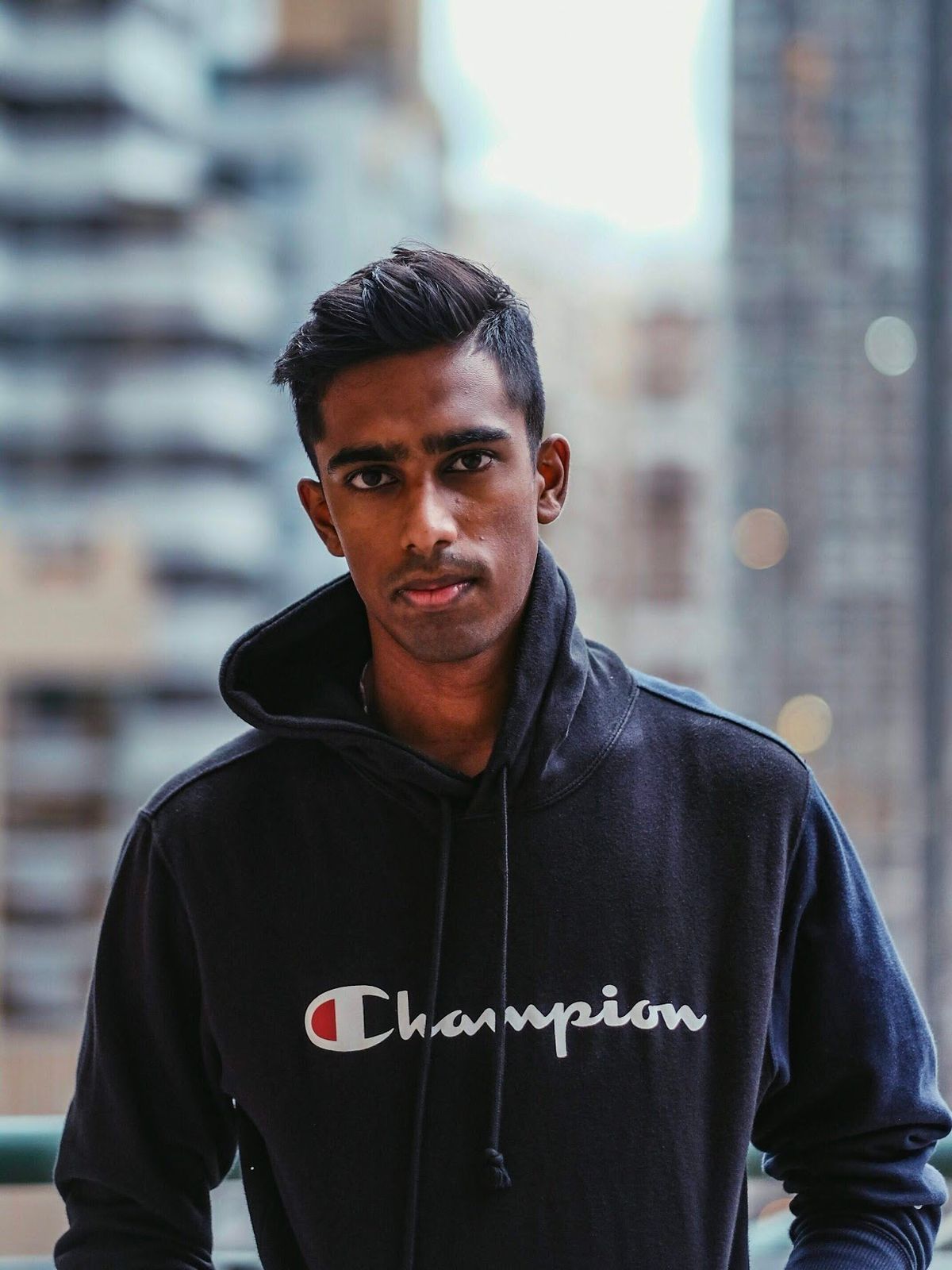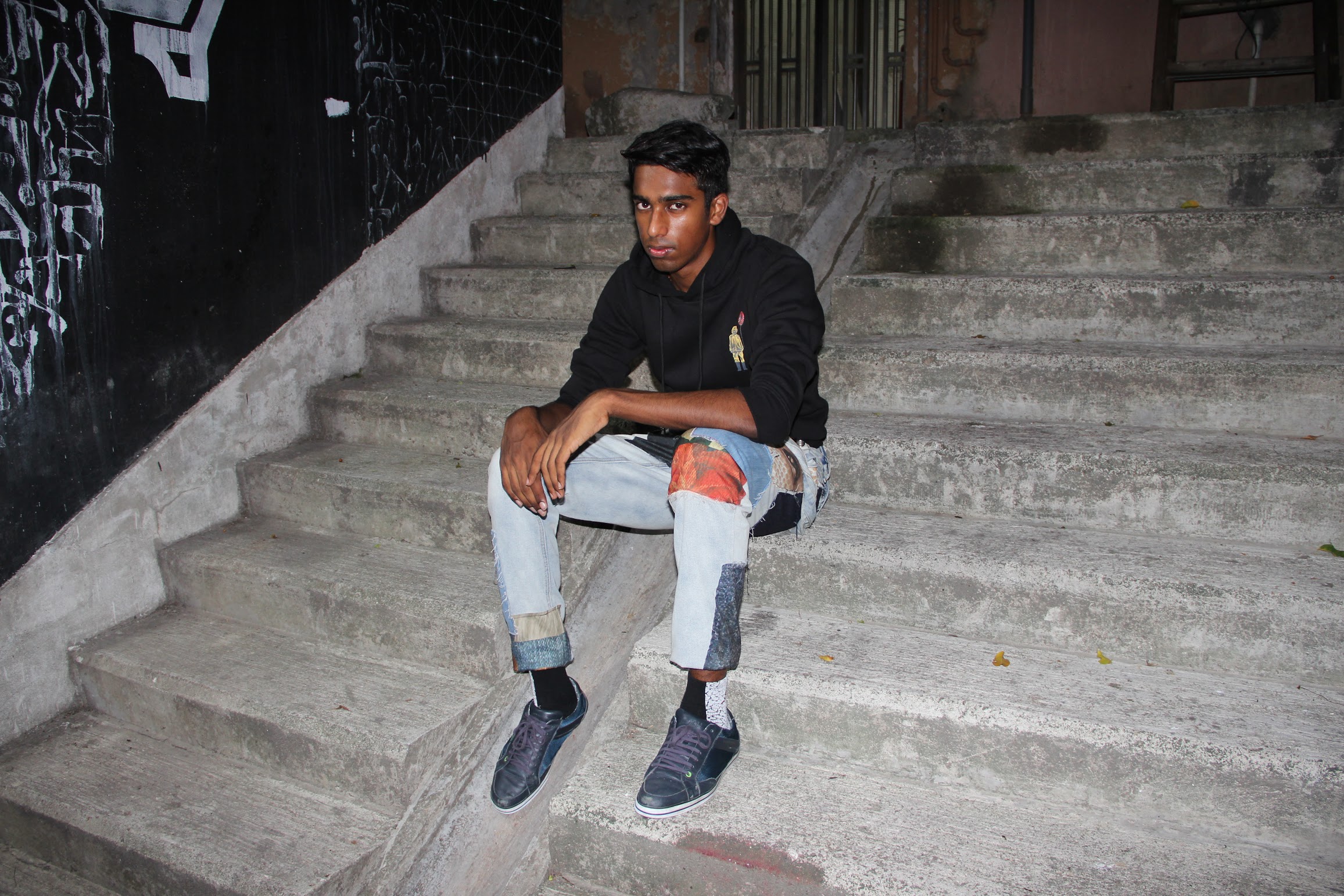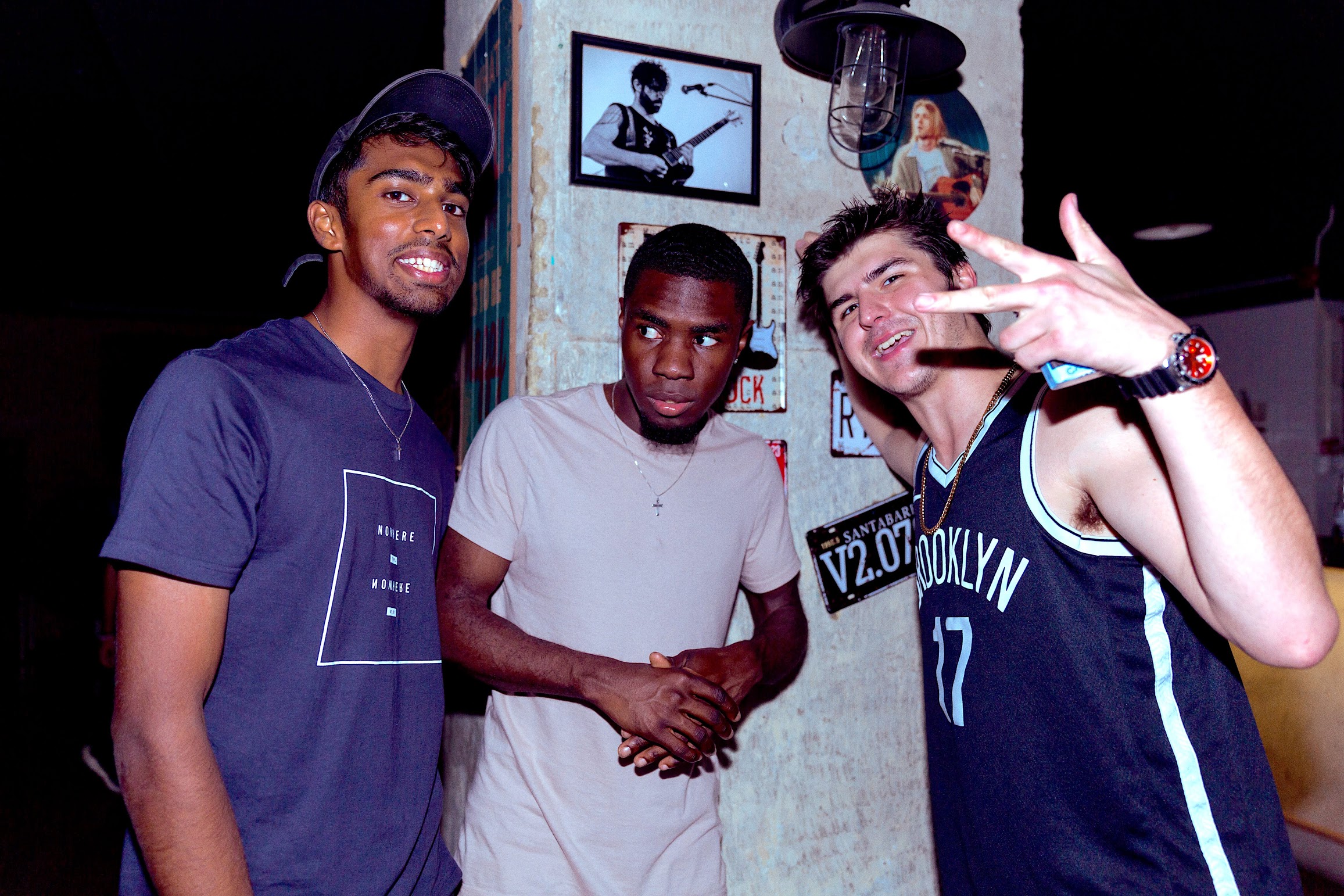Artist Kalou speaks on making it in the Hong Kong rap scene and beyond

A few minutes every morning is all you need.
Stay up to date on the world's Headlines and Human Stories. It's fun, it's factual, it's fluff-free.

There are few 20-year-olds out there with over two million streams on Spotify, it’s true. But Shawn Simon – aka Kalou – isn’t just any 20-year-old. Currently attending an Australian university, Simon is based in Hong Kong and balancing a burgeoning musical career with an impressive academic and extracurricular schedule.
He started small, releasing music while still in high school back in 2017, without any musical background. However, Simon’s prolific musical career truly began to take shape over the past couple of years. While his discography classifies as rap, there’s an evident embrace of experimentation as Simon grows into his own as an artist. R&B and pop clearly have their influence on what he creates.
Having spent time in Dubai, Hong Kong and Australia, to name a few, Simon works with producers and talents on a global scale. But for now, his prominence is growing in his current home of Hong Kong. With almost 50,000 monthly listeners on Spotify alone, Simon has begun to find his niche in the music community.
Recently, TMS caught up with Simon to talk about how he’s managed to navigate the music industry, and our chat did not disappoint.
The beginnings of Kalou

“I make music in pretty much any genre I find interesting, so I’ve been branching out from traditional trap, emo rap, into a bit of R&B, lo-fi, pop, and I’m going into a bit of EDM as well with different producers all over the world,” says Simon.
We can’t help but wonder where Simon got his “Kalou” stage name, and we find it is integral to his identity. “I was 11 in the school cricket team, and our school cricket team has everyone from the age of 11 to 18 just because it’s not feasible to have age groups put into teams,” Simon begins. “So I was actually the youngest kid on the team … and I’m south Indian, so my complexion of skin tends to be slightly darker than the rest of most Indians. And ‘kalou’ is a derogatory nickname that is actually used to title people with darker skin. It actually literally translates to ‘black.’ A lot of the older kids used to say that in a joking but semi-bullying way.
“Over time, more or less, my friends and I changed the meaning of the name, and it became an endearing name that only my close buddies say. I think the nickname just stuck because it just works as well. And when I came back to the same school in 2017 that I did cricket in … and I started rapping, I needed a name. The significance, the back story behind it, it just made a lot of sense to go with.”
Simon’s musical journey wasn’t a straight line from hip-hop. “I really wasn’t a huge rap fan,” he says. “I basically listened to what was in the now, like pop. I listened to a lot of Katy Perry and Taylor Swift [from] 2014 onwards. I like my Michael Jackson. He was like my one musical background I’ve had since I was a kid.
“I’d never been into making music of anything, but I’ve always been good with literature. More or less, what happened was, there was the late rapper XXXTentacion. He surfaced around the time 2017, 2016, and he put out an album called ‘17,’ which was very mental health-centered, very much about a lot of things that you don’t expect traditional trap rappers to be talking about – which is chains, money, fame … and I think I saw [music] as a way to outlet stuff that I’ve been feeling. A lot of emotional stuff that I just wanted to come out and say. I didn’t know how to communicate or who to tell,” explains Simon.
So, Simon found a release creating music, and the evolution of Kalou was just beginning. “Music just seemed like a good way to let it out,” he remembers. “I just did all of the research on my own. I went and bought a microphone. My parents thought it was a phase. I found a YouTube beat. And then I just self-taught myself some stuff.
“Luckily, in school, there were some music people already. I just hit them up and they helped me do the professional postproduction side. One thing led to another, and I just decided to keep on putting stuff out. But obviously, I wouldn’t expect anything to go this far.”
Making moves in the industry

Simon believes his musical influences help drive his artistic inclinations. “As I’ve gone on in time, my music is pieces put together of what I listen to,” he says.
In the beginning, Simon remembers his primary challenge was self-doubt and fear of criticism. “As a 16-year-old who’s got no history, and I don’t have the greatest voice in the world without processing or anything like that. I’m not a raw singing talent,” he points out.
“I’m a decent rapper. But there’s a lot of stuff that goes on behind the scenes that makes me sound the way I do sound. Even when you put in 100%, having the mental strength to deal with people who may not like your music because it’s not their taste, or people who may not like your music because it’s just because they don’t like you… I don’t know.”
Today, another challenge is resistance toward repetition and monotony. “Trying to evolve without compromising your artist identity,” is the description he uses.
Simon lives in an area rich with innovative music and artistry, making it difficult to get his work out there in Hong Kong’s dense metropolis of arts and culture. “In Hong Kong, there’s a whole difference in the type of people that listen to music,” he explains. “As in, there’s the local crowd who probably listen to more Canto-rappers … and I think that the Canto-rap scene is kind of on its own.
“And then there are kids like myself who are going to local schools or international schools who have a whole different brand. They’re trap rappers; they sound different, their aesthetic is different, their vibe is different. So, getting it out there in Hong Kong is never easy. I think that is the same with every other place, though.”
However, Simon did have a few advantages starting out. “I was very lucky because I had the whole school behind me when I started,” he remembers. “And I think when I started in 2017 when it wasn’t super saturated … I think the benefit for me was I came in at a time when far less people were involved with it – especially international kids, who were just trying to burst onto the hip-hop scene.
“And my appeal, as much as it is good locally, it’s quite limited. I think that’s just because of who I know and stuff, as well. I haven’t done as many shows. My numbers are a bit misleading in that sense. I’ve got more streams around the world than I do in Hong Kong. And I don’t think a lot of rappers here have that. They’re very strong locally, They’re known club to club….”
Despite competition with the Cantonese and Hong Konger hip-hop scene, Simon does see things evolving favorably within the industry. “The interaction between everyone in the community is a lot better now,” he points out. “I think there’s a push to create this bridge between the Canto side and the international side and just genuinely appreciate all of each other’s art. There’s a lot of talent around in different genres and different subgenres of hip-hop.
“So yeah, pushing it out in Hong Kong is not easy … but I think it’s getting a lot better.”
The future for Kalou

Simon’s outlook on the music industry has evolved. “When I was starting out, I had this chip on my shoulder,” he remembers. “Like, ‘why am I not doing better than this guy, this guy, this guy?’ I learned to accept that … everyone’s talented, people will be appreciated differently, and I don’t have to be in a competition with everyone. But that only comes with age and experience, I think. It’s very hard to just drill in from the start.”
If you listen to his music (which we recommend you do), you’ll notice how abundant and diverse Kalou’s collaborations with other artists are. He shared how he gets to work with like-minded musicians:
“For me, it’s not really that deep. It’s more if I like your music, if I like you as a person. I think the person behind the music is quite important to me because I like being friends with my collaborators. So Zah and TyBallin, they’re two of my best friends in real life, two guys I see literally almost every other day. I mean, I went to high school with the two of them in my last two years. Ty’s still here in Hong Kong now. He was at the show over the weekend. I brought him on stage to do a verse.
“These are guys who I have a natural chemistry with as friends before music. So that was always helpful. And we have chemistry in the booth too. For one summer we just did that. It is a big thing for me to see their personality. Like, OK, can I get along with this dude? I think just having no ego is quite important.”
Collaboration is very much about mutual growth, according to Simon. This is also something he considers when teaming up with another artist. Simon explains, “If we’re both willing to be honest with each other, criticize each other in a very constructive way, but also I see that their music can add something and give me some different sort of standpoint or appeal.
“I like reaching out to people as long as I can vibe with them and their music is something that I like as a fan or just as a fellow artist or creator. I just shoot my shot and hope I get along with them.”
It’s no secret that social media and streaming services have become essential in music promotion. From the early days of Myspace to now SoundCloud, Spotify and TikTok, these social networks are changing the industry and the way that artists are discovered.
“Social media – especially TikTok, which went crazy for the past two years – I’ve never been very good at it, marketing-wise, or even just making a TikTok,” Simon confesses. “But there are kids who are like two, three, four years younger, even younger than that … they’re influencers. They’ve made their lives off of that. It’s definitely changed the way you can market yourself.
“It’s really how you can attach yourself to people, and now we’re in a pandemic, so more people are home … So social media has taken even bigger booms. It really depends on how much you want to use it, and use it smartly. Obviously there are people who can boost your social media and this and that.”
But how is this infiltration of social media changing the production of music? “Maybe it’s made people make music that’s more formulaic and works with people’s ears to create a catchy sound rather than stuff that means a lot more?” Simon suggests. “I don’t know if that’s also because it’s a saturation of the amount of artists we have nowadays.
“I’ve definitely heard a lot of TikTok-able sounds. I don’t want to bash on anyone’s artistry like that, but it sounds like I hear a lot more similar things. Big ups to people who do that and walk with that brand because that’s their brand and that’s how they’ve become popular. It’s props to the younger generation, props to anyone who’s doing that and using the social media boom and stuff like TikTok, Triller, to really get out there.”
Checking in to see what kinds of projects Simon is working on now that we can look forward to, we learned that he has several things in the works. “I have an album, I’ve actually got a title for it and everything,” Simon reveals. “It’s called ‘Always Louphoric.’ It’s just this phrase I made about – I tweeted it out one day, and I deleted it – but I just made it one day. It came to me as like, where I’m in a state where I have everything to prove and nothing to lose.
“It’s this thing of showing everyone that I can do everything. And the album is a bunch of different things as a rapper. Like, I have a fast rap song. I have a slow R&B-type jam. It’s just a very full album.”
Simon’s also working on some material we’ve not seen before, like two music videos. He’s got “a whole rollout plan” over the next year or so, which we can’t wait to see unfold. It’s definitely time to keep our eyes on Kalou.
Is your business doing something cool that you want to show off? Get in touch at hello@themilsource.com




Comments ()